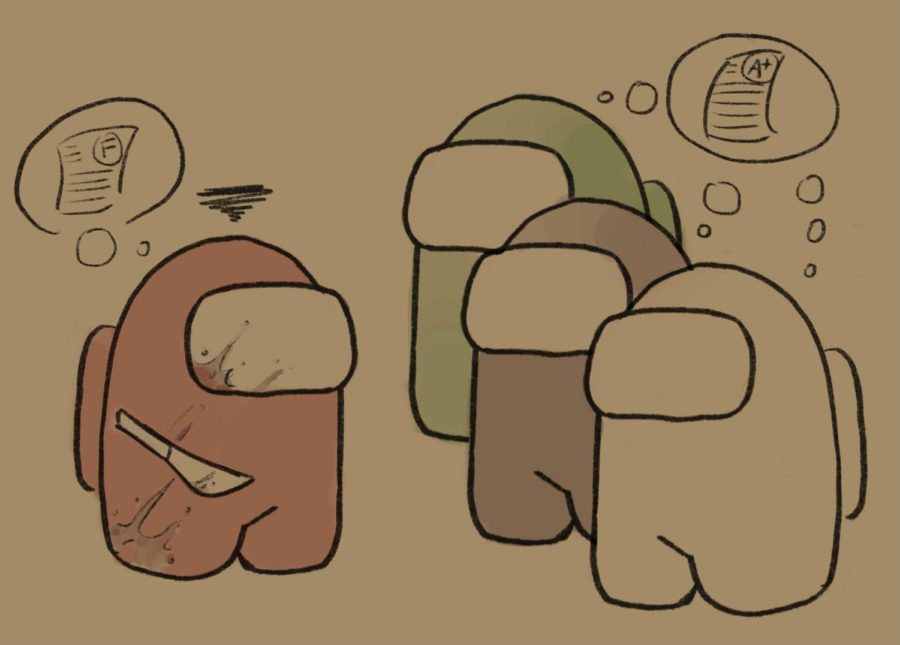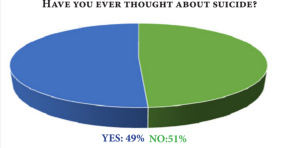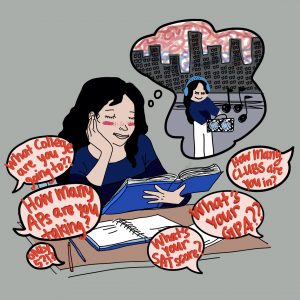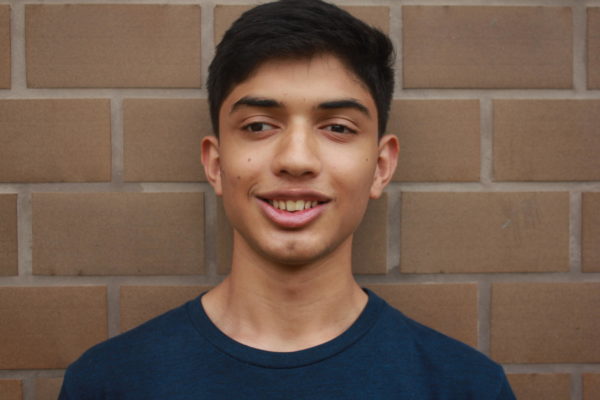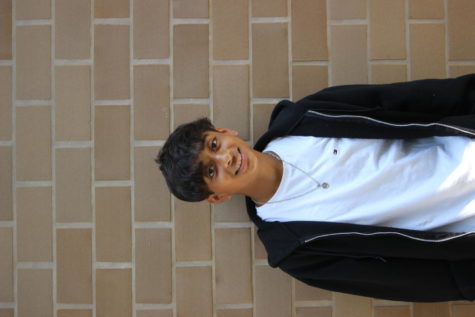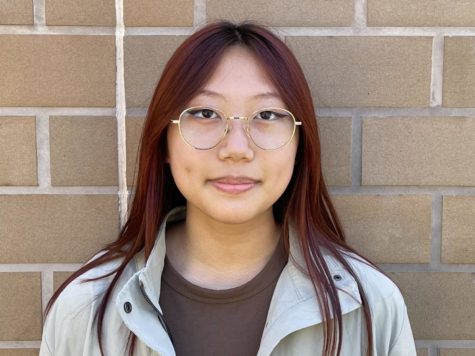Student academics have a strong impact on their social life
It’s easy for a person to feel like an “imposter” when academics are integrated into their social life.
October 4, 2021
Your teacher hands you your test back. Your vision is blurry except for the numbers in red on top, which indicate a semester of further stress, agony, and lies in an endeavor to fit in.
Your friend comes over and asks you what you got, and you lie and say that you got a 95. A pit forms in your stomach, but nothing is comparable to being an outcast in your friend group. You fear that if you don’t perform well your friends and peers will look down on you, and so the lies continue.
With Dougherty Valley High School (DVHS) being such an academic-oriented school, there is an unhealthy social culture of obsessive competition over grades. People believe that their social life is an escape from the trauma presented by their challenging classes, but in an environment where your grades and academic performance possibly dictate your social circles, is it truly the escape that many hope for?
This made us wonder whether a student’s academic performance at DVHS in terms of classes, grades, and extracurriculars play a role in their social life and social circles.
It continues to be near impossible to not involve academics in our social lives at DVHS. This is because of the rising competition fueled by factors such as college. As a result, many people are subconsciously programmed to try to differentiate themselves from others. This competition causes people to feel left out at times. We feel that this competition leads to people changing who they are to keep up with the competition and to fit in overall. This is a very unhealthy culture, as it leads students to think that they aren’t enough, which can result in an alarming amount of stress and mental health concerns. Our individual friends are always there for us and help offset the stress of academics, but the unknowing integration of academics into social life and friend groups can further the stress. Although we cherish the amazing times that we have with friends, such as hanging out after school or playing B-Ball, many times it is almost inevitable to bring some sort of academic chatter into the midst. We believe that friends should make each other feel welcome and understood, as opposed to making each other feel socially pressured and undermined due to academic performance. Though this may not be the case for all friend groups, from our research this seems to be common.
On the topic of grade-related performance, Shanay Champaneri, a senior at DVHS, explains that “It feels like a mandatory task to appear like you’re having good grades, and people frown upon other people for struggling, it gets really stressful in a way, especially if you compare yourself to others.”
This inferiority complex culture results in a phenomenon known as the imposter effect. The “imposter effect” is when a student is forced into lying to a peer, their parents, or themselves in hopes to fit in. In general, we feel that we and a lot of people at DV often run into the scenario, in which we feel that we need to lie in order to stay caught up with everyone else, so that we don’t feel inferior to them.
The reason that we, as students at DV, feel the need to fit in so much is that many of us fear that if we are left behind we are considered inferior and won’t ever be a success. Each of us wants to do as good as or better than the people next to us, whether that be friends, peers or even family. This includes getting a better grade on a test, getting into a better college or even getting a better job. Sometimes this competition motivates us to do better, but at other times, it puts us down making us feel less compared to others.
In the race to be better, especially at DVHS, we tend to take hard classes such as AP courses usually not out of interest but as a prerequisite to fit in and be part of the “path to success”. Rajni Nijjer, an academic counselor at DVHS, states that “we definitely see that students kind of are taking on a bit much, and trying to kind of keep up with whatever they feel like their friends are doing.” She later explains how students tend to not understand the difficulty of many of these classes until it’s too late, and often students are clueless in that they want to drop the class but fear the resulting social stigma accompanied with dropping a class. In the race to get into a good college, people forget to enjoy their experience in high school, as they feel that fun has no place in an Ivy League admission.
There is a lot of pressure from our school because it is such a competitive school and it is hard to stand out. Due to this, students end up doing things that they are overwhelmed with, resulting in stress and a decrease in academic performance. The culture here at DV, where you want to get into a good college, is evidently the goal of many people, in which you have to stand out to do so. It’s almost necessary at this point to do those hard courses, even if you don’t want to take them. So we think it definitely does play a part and that pressure is always there. Though the true problem is people further taking on the pressure as opposed to thinking it out.
Ms. Nijjer explains how at the end of the day it’s all self-inflicted because, in reality, people don’t care about other people’s grades. She states that she tells her students “ how do you actually know what somebody’s got, you don’t know, you go off what they’re saying”. Yet, the culture at DV makes an unnecessary inferiority complex on academic performance, where you start to doubt yourself over simple speculatory assumptions that you make about other people’s academic performance.
From what we’ve seen and experienced, if someone does better than you on a test, you feel bad and think that other people will assume that you are not smart. However, that tends to be more self-inflicted.
While the common misconception of taking hard classes and only getting A’s to get into a good college still exists, in the process of this competition, students are losing their personalities due to the ongoing stress. Our personal opinion is that a student’s friend groups and social lives shouldn’t be intertwined with their academics as students will be left with no social life to offset the enormous amount of academic stress they already have. The culture of fitting in and making friends based on academics needs to change, and we think we can all start by taking out the mindset of thinking we are less compared to someone if we get a worse grade than them.

